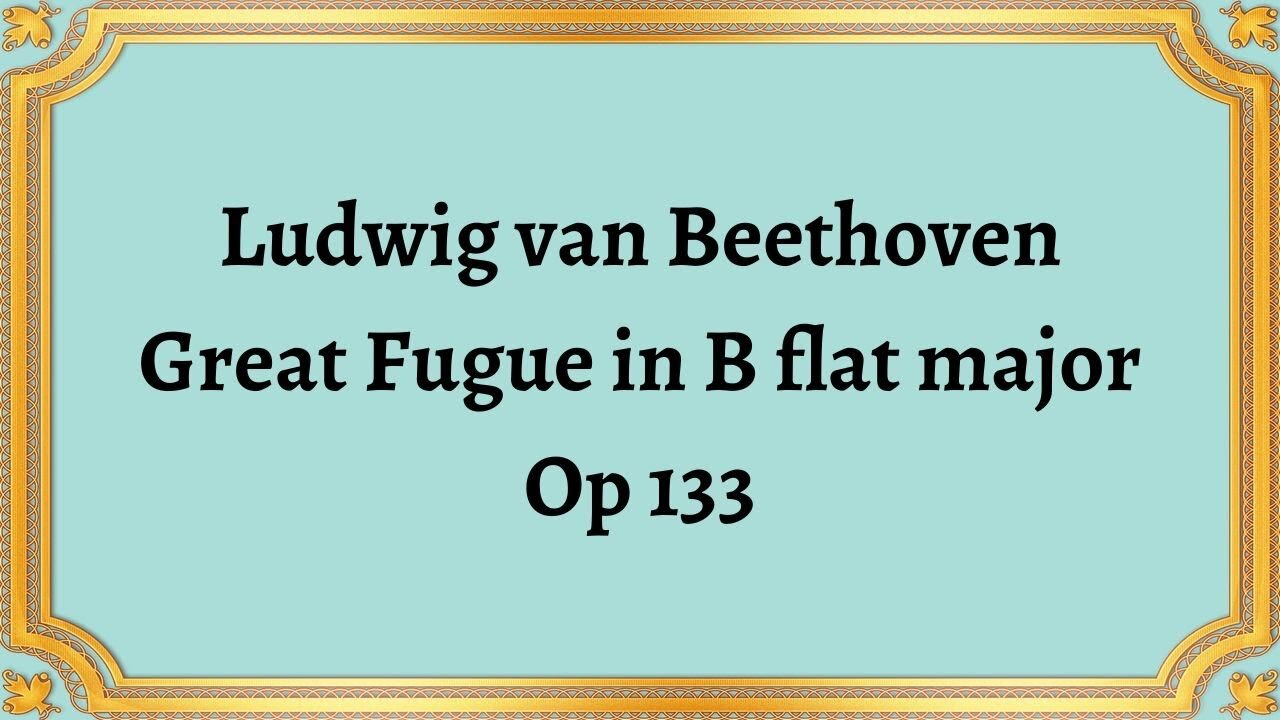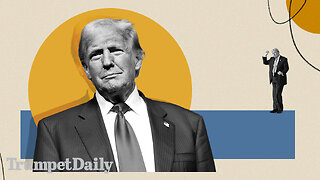Premium Only Content

Ludwig van Beethoven Great Fugue in B flat major Op 133
Publication date 1947
Kroll Quartet
William Kroll (violin I)
Louis Graeler (violin II)
Nathan Gordon (viola)
Avron Twerdowsky (cello)
Ludwig van Beethoven, one of the most renowned composers in history, has left an indelible mark on the world of music. Among his vast body of work, the Great Fugue in B-flat Major, Op. 133 stands out as a remarkable composition that exemplifies Beethoven's genius.
The Great Fugue, also known as Grosse Fuge, was composed by Beethoven between 1825 and 1826, during the final years of his life. It was originally intended as the final movement of his String Quartet No. 13 in B-flat Major, Op. 130. However, its avant-garde nature and complexity caused controversy among audiences and performers alike. As a result, Beethoven's publisher convinced him to replace the fugue with a more conventional finale, and the Great Fugue was published separately as Op. 133. This decision sparked debates among musicians and scholars, cementing the Great Fugue's status as a groundbreaking and divisive composition.
The Great Fugue is a monumental work, lasting approximately 15 minutes in performance. It showcases Beethoven's mastery of counterpoint, a technique in which multiple melodic lines intertwine and interact harmonically. The piece consists of a double fugue, meaning it contains two fugues that are played simultaneously, creating a rich and complex texture. Beethoven pushes the boundaries of traditional fugue writing, employing unexpected modulations, rhythmic complexity, and daring harmonic progressions. This innovative approach highlights Beethoven's desire to explore new musical territories, paving the way for future generations of composers.
Beethoven's Great Fugue is a testament to his bold and uncompromising artistic vision. Despite its initial reception, the composition has garnered admiration and fascination over time. Its unconventional nature and technical challenges continue to inspire musicians and spark intellectual discussions. The Great Fugue's exploration of complex emotions and profound musical expression transcends time, making it a cornerstone of Beethoven's late period and a symbol of musical innovation. Performances of this masterpiece captivate audiences with their intensity, intellectual depth, and emotional impact.
Ludwig van Beethoven's Great Fugue in B-flat Major, Op. 133 stands as a testament to the composer's genius and musical exploration. Its historical context, intricate structure, and enduring significance make it a masterpiece that continues to captivate audiences today. This groundbreaking work represents Beethoven's unwavering commitment to pushing the boundaries of music and his ability to convey complex emotions through sound. Whether listened to as a standalone piece or within the context of his string quartet, the Great Fugue remains a pinnacle of
-
 49:35
49:35
Donald Trump Jr.
4 hours agoA New Golden Age: Countdown to Inauguration Day | TRIGGERED Ep.202
40.3K58 -
 1:14:34
1:14:34
Michael Franzese
3 hours agoWhat's Behind Biden's Shocking Death Row Pardons?
16.9K11 -
 LIVE
LIVE
Tundra Tactical
1 hour agoThe Best Tundra Clips from 2024 Part 1.
195 watching -
 LIVE
LIVE
Sarah Westall
1 hour agoDying to Be Thin: Ozempic & Obesity, Shedding Massive Weight Safely Using GLP-1 Receptors, Dr. Kazer
261 watching -
 LIVE
LIVE
LFA TV
22 hours agoThe Resistance Is Gone | Trumpet Daily 12.26.24 7PM EST
158 watching -
 LIVE
LIVE
theDaily302
10 hours agoThe Daily 302- Tim Ballard
150 watching -
 13:22
13:22
Stephen Gardner
4 hours ago🔥You'll NEVER Believe what Trump wants NOW!!
50K148 -
 54:56
54:56
Digital Social Hour
1 day ago $6.19 earnedDOGE, Deep State, Drones & Charlie Kirk | Donald Trump Jr.
22.6K -
 DVR
DVR
The Trish Regan Show
5 hours agoTrump‘s FCC Targets Disney CEO Bob Iger Over ABC News Alleged Misconduct
31.8K20 -
 1:48:19
1:48:19
The Quartering
6 hours agoElon Calls White People Dumb, Vivek Calls American's Lazy & Why Modern Christmas Movies Suck!
105K76